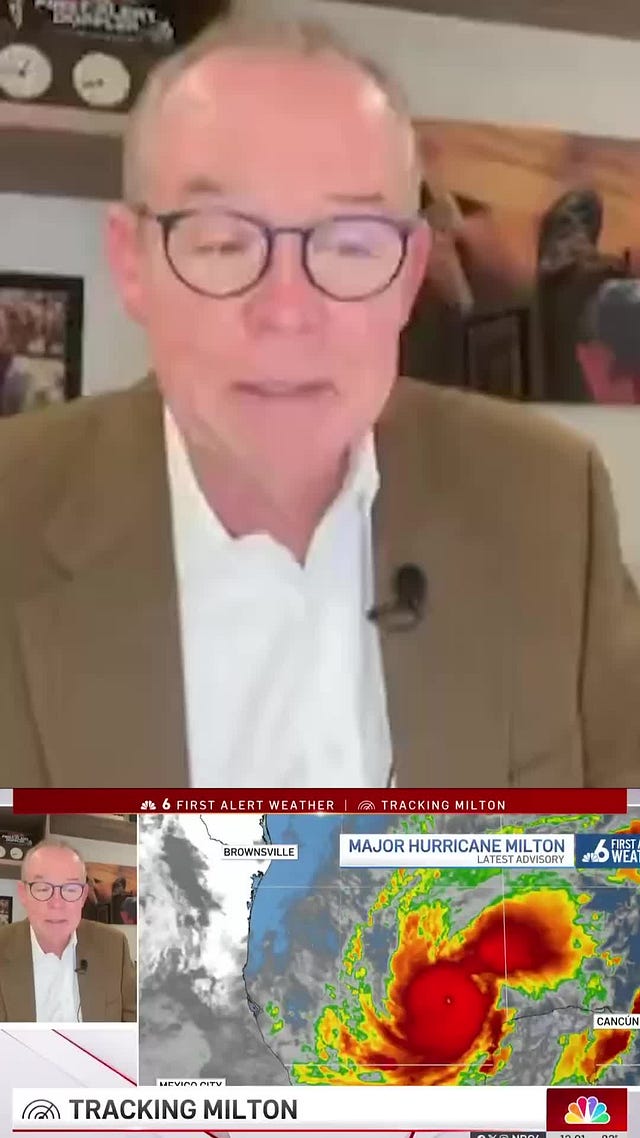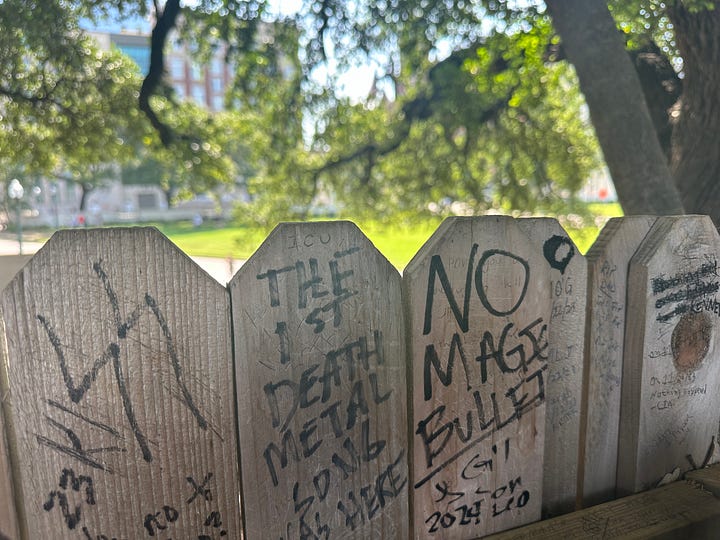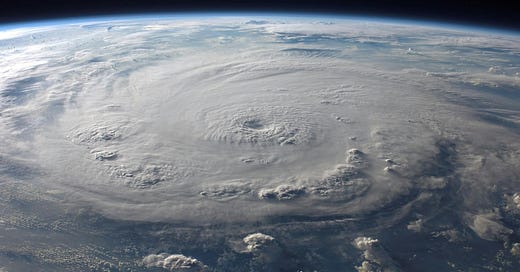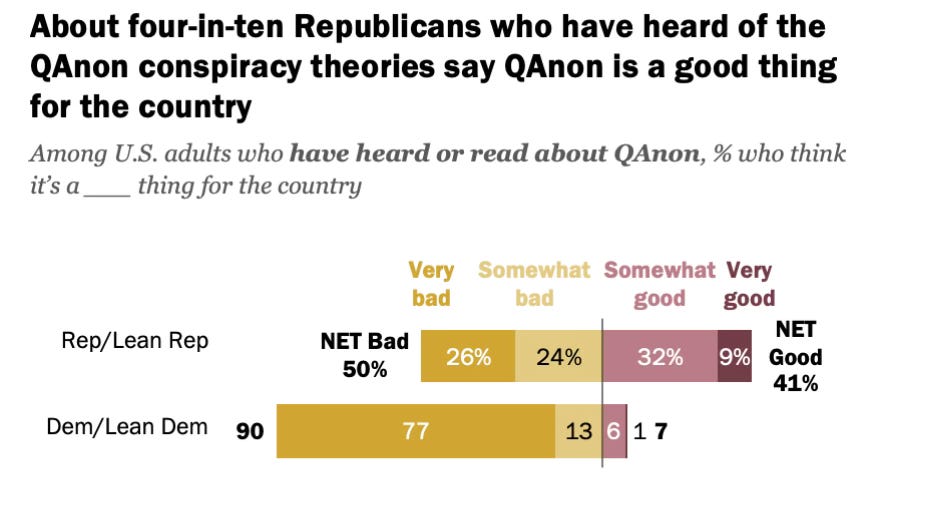The Eye of Ignorance: Where Hurricanes Meet Herpes
Unmasking the Shared Roots of Climate Denial and STI Stigma in an Era of Rampant Misinformation
In a world where hurricanes are politicized and herpes is stigmatized, misinformation reigns supreme. What if I told you that these two seemingly distant topics share a common thread?
Anytime I open TikTok or Instagram, I feel like I’m bombarded with myths or misinformation. With the upcoming U.S. election, this seems even more rampant.
The Eye of the Storm: Climate Change Denial and STI Stigma
In recent weeks, as Hurricanes Helene and Milton struck Florida in quick succession, my FYP has been inundated with content about these events. What struck me most was the alarming number of people claiming that weather is controlled by political parties.
I’m no climate change expert, but I’ve seen enough small shifts in Philly and Maryland to understand its impact. This week, I found myself drawing surprising parallels between hurricanes and sexually transmitted infections (STIs)—two seemingly unrelated topics that share a common thread of misinformation and willful ignorance.
I know, it sounds a bit far-fetched, but hear me out.
I’ve watched the viral clip of John Morales, a Florida meteorologist, getting emotional over the strength of Hurricane Milton, along with countless other experts and regular people trying to educate the masses about the impact of climate change.

 Tiktok failed to load.
Tiktok failed to load.Enable 3rd party cookies or use another browser
Despite all the research, data, and lived experiences of people seeing these changes in their own environments, many remain trapped in a cycle of misinformation and conspiracy theories—but why?
Put simply, things become complex when our belief systems are involved.
As a sex therapist and educator, I encounter willful ignorance frequently in my work. Whether it’s someone denying facts about herpes, spreading myths about people with STIs, or even someone in my dating life rejecting me because of my herpes status, I’ve experienced the fallout of willful ignorance both personally and professionally.
If you’re unfamiliar with the term, willful ignorance occurs when someone is presented with facts that may challenge their belief systems, or would make their claims otherwise invalid.
While willful ignorance has generated viral memes and sound bites throughout the 2024 U.S. election campaign, it has also fueled family conflict, cynicism, polarity, and real-world damage.
In 2020, I wrote an article for The Philadelphia Inquirer about the parallels of public health and sex education when it came to COVID. Never did I think we’d need to have a conversation debunking hurricanes, but alas, here we are.
Government Distrust and Social Media
While misinformation continues to grow and political figures continue to accuse each other of dishonesty, The Pew Research Center put out an interesting study. The US has monitored public trust in the government since the 1950s—1958 to be exact—when three-fourths of Americans trusted the government to do the “right” thing. There have been various shifts in trust over the years depending on which party is in power.
Candidly, I’d assume that misinformation following COVID propelled the growth of mistrust of government, but this 2024 survey actually indicates a small rise in trust, from 16% last year to 22% in April, mostly among Democrats.
Though there is a small increase of trust in the government, that still leaves a large majority of people distrusting. This not only impacts trust in leadership, but various government organizations and agencies, too.
Conspiracy Theories: When Distrust Breeds Disbelief
Distrust in the government often serves as fertile ground for conspiracy theories to take root. This summer, I found myself in Dallas, where President John F. Kennedy was assassinated in 1963. As a longtime JFK and Jackie fan, I visited the former Texas School Book Depository, now The Sixth Floor Museum, and embarked on a JFK Assassination walking tour.
61 years later and people are obsessed with conspiracies about that day in Dallas. From questions asked by fellow tour goers, to notes left on the fence above the grassy knoll, conspiracy surrounds Dealey Plaza.


The American Psychological Association (APA) provided an overview of why some people can remain so invested in conspiracy theories. Research points to a combination of factors ranging from personality traits to social motivations, like feeling safe in one’s identity and maintaining a sense of superiority in their communities.
A recent study analyzed 170 studies with over 158,000 participants and found that people who perceive social threats are more likely to endorse event-based conspiracy theories. Personality traits, like paranoia, can increase someone’s likelihood to engage in conspiracy theories.
The conspiracy theories of this election aren’t new, and echo many of those present in the 2020 U.S. Presidential Election. The Pew Research Center drew attention to conspiracy theories out of QAnon in 2020, noting it as another area of partisan divide—with 90% of Democrats surveyed believing it’s a bad thing for the country, and 50% among Republicans.
The Psychology of Denial: Why We Choose Ignorance
Let’s be clear. It can be hard for all of us to look in the mirror and admit, “I was wrong.” While this is a challenging fact of life, for some, it’s an impossibility. I’ve observed that it can be especially difficult for men who are deeply entrenched in traditional beliefs about masculinity to acknowledge when they’re wrong.
Researchers analyzed 22 studies and found that 40% of people choose to remain ignorant to information when faced with moral decisions. Willful ignorance serves as a protective armor. Some motivations for this choice may simply be laziness and a lack of wanting to know more, while others may feel social pressure to stick to the status quo. Overall, researchers note that willful ignorance allows people to act in their self interests without guilt.
When we examine issues like climate change and sexual health, there might not seem to be an immediate connection. However, beneath the surface, both topics involve moral and ethical choices that challenge our beliefs and comfort zones. They ask us to examine our beliefs and reconcile them with hard facts.
This reflection often forces a difficult decision: Do we continue treating the planet the same way? Do we perpetuate harmful myths about who gets STIs? Or do we confront these misconceptions and change our behavior.
Herpes and Willful Ignorance
Oftentimes, it’s a lot easier for someone to continue their incorrect belief systems when confronted with fact. In the United States, health classrooms that provide sex education aren’t required to be medically accurate — it depends on the state where you live. Currently, only 18 states require that content be medically accurate, leaving many students vulnerable to long-term impacts of misinformation.
Socially, sex is closely tied to morality when it comes through the lens of religion. If you’re like me and received abstinence-only education through a parochial school, you’ve likely had a similar realization— you were lied to.
I learned that sex before marriage was wrong. I was taught that sex was preserved only for married, heterosexual men and women. I learned nothing about my pleasure. I learned that STIs made me a bad person and to avoid them at all costs.
This misinformation deeply impacted my herpes diagnosis experience, as it does many others. In my work, I find that people are genuinely only confronted with these feelings when they or someone else in their life is diagnosed, or if someone shares their STI status with them. Otherwise, many move through life through the lens of invincibility.
People have two choices when faced with this information: 1) they can look inward, reflect, research and do the work of unlearning and relearning, or 2) they can remain ignorant in their belief systems. Again, it’s not an easy thing to admit when we, or the systems we valued and assign morality to, could be wrong.
Ignorance is comfortable, and unlearning takes effort.
The High Cost of Ignorance: From Public Health to Climate Change
Social media has made our views that much more accessible to others, which is both good and bad from an educational standpoint. On one hand, people have more access to information than before, on the other, not everyone is trained or knows how to utilize it or identify credible resources.
In 2024, The National Literacy Institute reports that 79% of Americans are literate, but 54% of adults have a literacy level below sixth grade (and 20% are below fifth grade).
When I share resources with my followers, or even those linked here, I do my best to ensure their credibility. Many are found on government websites, like the Centers for Disease Control and Prevention (CDC) or the National Institutes of Health (NIH).
The combination of widespread distrust in government institutions and lower literacy levels creates a perfect storm that our media landscape and society are ill-equipped to handle. In our demand for immediacy, baseless viewpoints without expertise or credibility spread like wildfire across social networks, especially when they uplift our values and beliefs.
No matter how many research-backed or government sponsored data I have to prove my point about the commonality of STIs, someone who is committed to an attitude of willful ignorance and is already distrustful of the government is probably going to struggle to believe me. Is it impossible? No. Unlikely? Yes.
Unlike hurricane notifications, most people don’t go walking down the street sharing their STI status with strangers. It’s easy to continue to perpetuate the myth from something that seems so distant from us. We want to feel safe and superior, and society tells us that an STI makes us an outcast. It’s no wonder that misinformation thrives in this environment.
Whether we’re talking about the realities of climate change or the prevalence of STIs, willful ignorance allows people to maintain a false sense of security and superiority.
But the cost of ignorance is high. Just as ignoring the realities of climate change puts lives at risk during extreme weather events, perpetuating myths about STIs bolsters stigma, leaves people in isolation, leads to inadequate healthcare, and results in missed opportunities for education and treatment.
Breaking the Cycle: Confronting Our Beliefs
I wish I could wave a magic wand and teach everyone about credible sources and critical thinking skills, but I’m also a realist. Fortunately, I’m also a positive thinker who truly believes that each of us is capable of creating waves of change in our communities.
No one is immune to willful ignorance. The first step in making a change is recognizing your potential role in misinformation and harm. Whether it’s about herpes, hurricanes, or another current event, take time to step back, reflect on what you think you know, and examine the facts. What are your sources? Where did you learn that information, and were there any hidden agendas?
It may not be easy, but it is essential in helping break down unknown stigmas, stereotypes, and myths in your own communities—about sexual health, climate change, and beyond. The second and, arguably, more challenging step, is learning to actively confront misinformation in your life.
The experiences those affected—by both hurricanes and STIs—are real, and misinformation only serves to undermine and invalidate their realities.
It’s hard to go against our communities, or stand out among the crowd. But you never know who might appreciate you standing up for them. There will always be nonbelievers and people who choose comfort over intellect, but I promise—someone is listening.







